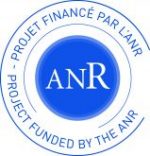THIS OFFER IS NOW CLOSED
Mathematical analysis of the dynamics of biological regulatory networks
Context: The dynamical behavior of a living cell is complex and results from the connection of several molecular regulatory networks (gene regulations, metabolic regulations, signaling networks…). In order to comprehend the complexity of such networks, mathematical modeling, in particular dynamical systems theory, is a key. Thanks to a mathematical model it is possible to analyze the main dynamical properties of a system and to simulate different conditions to biologically validate the model and test its limits.
The ANR-funded project ICycle (2017-20) is an interdisciplinary research project gathering three recognized French institutions (INRA Jouy-en-Josas, Inria Sophia-Antipolis and iBV Nice) on the modeling and the analysis of two central regulatory systems in mammalian cells: the cell cycle and the circadian clock. Within this project a PhD in applied mathematics is proposed, aimed at the analysis of several classes of dynamical systems which are relevant for biological regulatory networks modeling.
Subject of the PhD: The main objective of the PhD is to propose original methods and tools (mathematical, algorithmic and computational) for the analysis of dynamical models of cellular networks. Two particular classes of dynamical systems are aimed at: discrete systems and ordinary differential equations (ODE) systems.
Discrete dynamical systems, in particular asynchronous Boolean networks, are specifically relevant for cellular networks [1]. Their coarse-grained nature and their computational tractability are well suited to represent interactions between heterogeneous, sometimes ill-known processes, and thus to analyze the qualitative dynamics of networks comprising about twenty biological variables. After the PhD student gets acquainted with this kind of systems (which are well-known in hosting research groups) he/she will contribute to develop mathematical and computational tools for their analysis, including (but not limited to): operational interaction inference [2], generalization to multi-valued systems [3] or the development of a computational toolbox. Recently, members of the consortium proposed a new methodology to interconnect several asynchronous networks [4]. This approach has interesting potentials in biology, in model reduction as well as for the analysis of multicellular networks. Thus, the PhD student will have the opportunity to develop original methods to analyze the dynamics of large interaction networks.
The second goal of the PhD is to develop efficient methods to transfer dynamical information obtained in the discrete framework to more general ODE systems. This step can be based for instance on a special class of piecewise affine differential systems with a strong discrete component [5]. Beyond the search for general equivalence theorems, accent will be put on an operational transfer of relevant dynamical properties from discrete to continuous frameworks (for instance: existence of a unique attractor, coexistence of several attractors, stability, sensitivity/robustness with respect to key parameters, etc.). The impact of such a task is especially interesting when it is based on concrete biological models and centered on precise biological questions. Thus, the application to the models built within the interdisciplinary ICycle consortium will provide an ideal framework to develop, test and refine the produced methods.
Expected profile: Master (or equivalent) in applied mathematics or in computer science with a component in dynamical systems and/or control theory. Algorithmic and programing skills will be appreciated (knowledge of a programing language or scientific computing software such as Matlab). No biological background is required, although a strong taste for applications in living science is needed.
References
[1] L Calzone, L Tournier et al (2010) PLoS Comp Biol, 6(3):e1000702.
[2] L Tournier, M Chaves (2009) J Theor Biol, 260(2):196–209.
[3] M Chaves, L Tournier et al (2010) Acta biotheor, 58(2-3):217–232.
[4] L Tournier, M Chaves (2013) Automatica, 49(4):884–893.
[5] M Chaves and JL Gouzé (2011) Automatica, 47:1105–1112.
Practical information: The PhD will be funded by the ANR project ICycle (approximate monthly growth salary: 1750 €) and will start before October 2017. It will be supervised by Laurent Tournier, research scientist at INRA, Madalena Chaves, research scientist at Inria and Vincent Fromion, senior research scientist at INRA. It will take place at Jouy-en-Josas, within INRA laboratory MaIAGE (in the team
Systems Biology). Occasional visits to Inria Sophia-Antipolis (team BIOCORE) are planned.
Interested candidates should send an e-mail to laurent.tournier@inra.fr, with a detailed resumé including available grades in Master and the name of one or two referee(s).
